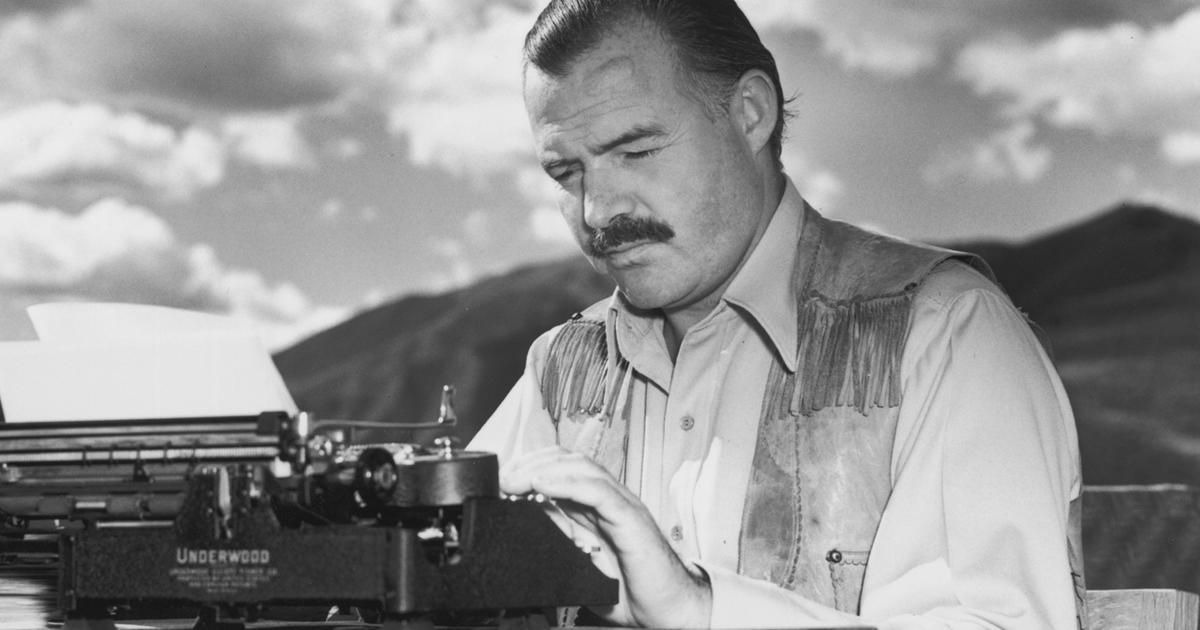Sixty-nine pages of writing advice from Werner Herzog, Flannery O’Connor and more or less every other artist who’s ever put pen to paper
Here’s that inspiration you were looking for.

Image: Ernest Hemingway's writing aphorisms are perhaps more widely read today than his novels
There’s a vast subsection of the internet dedicated to motivational quotes about writing: site after site (after Pinterest board after Tumblr post) full of low-resolution jpegs, each emblazoned with the words of some literary heavyweight who once said something deep but ultimately difficult to do anything with about the art of writing.
On one level, the proliferation of such quotes makes sense: writers love dispensing advice almost as much as they love writing, and writing students love reading famous writers write about writing almost as much as they love procrastinating on the internet. Format said quotes in typewriter font or place them over stock photos of fountain pens (or better yet, do both) and you’ve got yourself some bona fide internet fodder, ripe for heating up server farms from Iowa to Nebraska.
It’s doubtful many successful writers have spent much time wading through the motivational quote wastelands. But that’s not to say the form is entirely without merit. Earlier this year, author Karan Mahajan took to Twitter to share a 69-page list of quotes about writing given to him by National Book Award-winning novelist Denis Johnson.
The list, which you can download as a PDF, is a veritable who’s who of literature's big names. Ernest Hemingway, Jack Kerouac and Hunter S. Thompson all get to have their say on what it takes to be a good writer—and though the internet hardly needs more space devoted to the Big Men of Serious Writing™, their inclusion somehow never quite feels rote. (The addition of writers like Flannery O'Connor and Cynthia Heimel certainly helps.)
But it’s the lists’ loose definition of ‘writer’ that really sets it apart from the Pinterest dust bowl. Johnson was apparently just as interested in what the world’s philosophers and artists had to say about creativity as he was its bestselling authors. And so we hear from Friedrich Nietzsche, Werner Herzog and a Buddhist monk named D.T. Suzuki almost as often as Stephen King and Raymond Chandler.
“Simplicity is not an end in art,” Johnson quotes sculptor Constantin Brancusi as saying, “but we usually arrive at simplicity as we approach the true sense of things.”
That may be true of carving an object out of marble, but it’s equally true—or at least should be—of writing, the best examples of which often manage to say so much with so little. (Five hundred-word blog posts notwithstanding.)
Brancusi’s is just one of the hundreds of aphorisms you might seek out next time you’re looking for inspiration, or distraction from a blank Google Doc. Here are a few others:
- “First thought best thought.” —Jack Kerouac
- “To write the best story you can, take out all the good lines.” —Ernest Hemingway
- “The first and most obvious characteristic of fiction is that it deals with reality through what can be seen, heard, smelt, tasted, and touched.” —Flannery O’Connor
- “The job boils down to two things: paying attention to how the real people around you behave and then telling the truth about what you see.” —Stephen King
- “Let the things that happen onstage be just as complex and yet just as simple as they are in life. For instance, people are having a meal at table, just having a meal, but at the same time their happiness is being created, or their lives are being smashed up.” —Anton Chekhov
You can read all 69 pages of quotes here.
